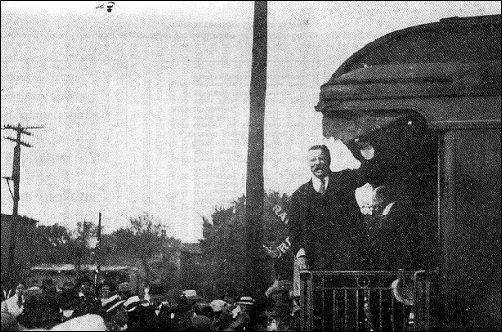[ cross-posted from Zenpundit — philosophy, psychology, history, game theory, dilemma, commons cooperation, analogy, 9/11 ]
.
I have an interest in game theory that is much like my interest in music: I can’t play, but I can whistle. And so it is that I’ve substituted curiosity about the history of the thing, and whatever analogical patterns I can discern there, for any actual ability at the thing itself.
Somewhere in my analogy-collector’s mind, then, I have these two quotes, cut from the living tissue of their writer’s thoughts, and prepped fpor contemplation. I find them, in retrospect, quite remarkable.
Jean-Jacques Rousseau, in On the Inequality among Mankind, wrote:
Such was the manner in which men might have insensibly acquired some gross idea of their mutual engagements and the advantage of fulfilling them, but this only as far as their present and sensible interest required; for as to foresight they were utter strangers to it, and far from troubling their heads about a distant futurity, they scarce thought of the day following. Was a deer to be taken? Every one saw that to succeed he must faithfully stand to his post; but suppose a hare to have slipped by within reach of any one of them, it is not to be doubted but he pursued it without scruple, and when he had seized his prey never reproached himself with having made his companions miss theirs.
And David Hume, in A Treatise of Human Nature:
Your corn is ripe today; mine will be so tomorrow. ‘Tis profitable for us both that I shou’d labour with you today, and that you shou’d aid me tomorrow. I have no kindness for you, and know that you have as little for me. I will not, therefore, take any pains on your account; and should I labour with you on my account, I know I shou’d be disappointed, and that I shou’d in vain depend upon your gratitude. Here then I leave you to labour alone: You treat me in the same manner. The seasons change; and both of us lose our harvests for want of mutual confidence and security.
*
Those two, I believe, are fairly well known – I was delighted the other day to run across a third sample for my collection. William James, in The Will to Believe, writes:
Wherever a desired result is achieved by the co-operation of many independent persons, its existence as a fact is a pure consequence of the precursive faith in one another of those immediately concerned. A government, an army, a commercial system, a ship, a college, an athletic team, all exist on this condition, without which not only is nothing achieved, but nothing is even attempted. A whole train of passengers (individually brave enough) will be looted by a few highwaymen, simply because the latter can count on one another, while each passenger fears that if he makes a movement of resistance, he will be shot before any one else backs him up. If we believed that the whole car-full would rise at once with us, we should each severally rise, and train-robbing would never even be attempted.
*
The first two quotes are of interest as showing the forms that an idea which will later be mathematized can take. They are, if you like, precursors of game theoretic constructs, although neither Hume nor Rousseau appears to be mentioned in von Neumann and Morgenstern‘s Theory of Games and Economic Behavior.
The third, I think, is even more interesting.. Consider the eerie and heroic “fulfillment” of that third paragraph if read “as prophecy” – in this account from the 9/11 Commission Report of the events on United Flight 93:
During at least five of the passengers’ phone calls, information was shared about the attacks that had occurred earlier that morning at the World Trade Center. Five calls described the intent of passengers and surviving crew members to revolt against the hijackers. According to one call, they voted on whether to rush the terrorists in an attempt to retake the plane. They decided, and acted. At 9:57, the passenger assault began. Several passengers had terminated phone calls with loved ones in order to join the revolt. One of the callers ended her message as follows:
“Everyone’s running up to first class. I’ve got to go. Bye.” The cockpit voice recorder captured the sounds of the passenger assault muffled by the intervening cockpit door.
Yesterday’s highwayman is today’s hijacker, yesterday’s train is today’s plane…
*
If there’s anything to be learned here, it’s not a novel way of protecting trains or aircraft from passengers of malicious intent —
It’s that there’s a subtle thread running from something akin to instinct that’s also close to unspoken common sense, surfacing for a moment in the writings of thoughtful individuals, leading on occasion to the formulation of exact mathematical principles — but also (i) available, (ii) in the human repertoire, (iii) to be acted upon, (iv) cooperatively, (v) as required, (vi) via the medium of human common interest, (vii) which provides the resultant trust.
Which may in turn offer some reason for hope — for a humanity in various forms of communal distress…
